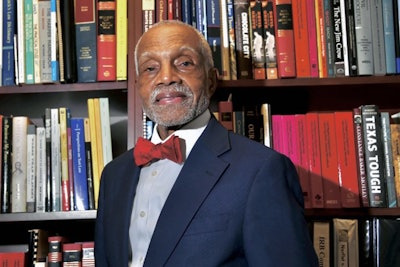Almost 70 years after the landmark U.S. Supreme Court case Brown v. Board of Education that ruled racial segregation as unconstitutional, the right to an equitable education is still not a given for many Americans. That issue was discussed at the Education Law Center's (ELC) 13th annual lecture delivered by University of District of Columbia law professor John Brittain
ELC, a policy advocacy group, titled last Thursday's lecture “Beyond Either/Or: The Constitutional Right to an Equitable and Diverse Public Education". New Jersey Education Association (NJEA) and the Educational Testing Service (ETS) were sponsors.
Based on data collected by Economic Policy Institute in 2017, Black children are more than twice as likely to attend high-poverty schools compared to white children. The study also found that the performance Black students suffer when attending high-poverty schools with high shares of students of color. Brittain pointed out that experts have long been stuck in the great debate on how to remedy the deficit for students in segregated schools. Do we increase funding for Black and Latino students, thus creating equal but segregated schools, or do we integrate all schools?  UDC Law Professor John Brittain
UDC Law Professor John Brittain
“We should merge the two points together,” said Brittain. “And seek to go beyond the great debate.”
Brittain believes that diversity itself is now a core component of an adequate public education. Students, he said, need to be prepared to work across lines of differences to succeed in the 21st century workforce.
Elise Boddie, a professor at Rutgers Law School, echoed Brittain’s point by adding that segregation doesn’t just hurt Black students, adding that white students are also impacted in the process.
“The danger to white children is that they learn the prejudices of our society. They are taught to gain personal status in unrealistic and non-effective ways,” said Boddie.




















